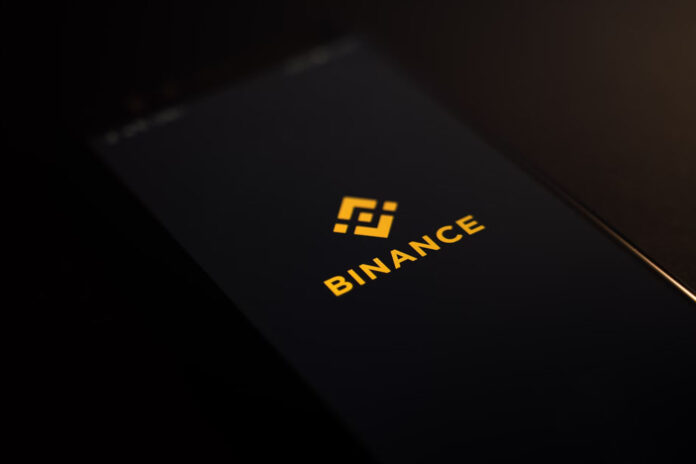Binance founder Changpeng Zhao has threatened to pursue legal action against Bloomberg for the second time, following the news agency’s controversial report linking the cryptocurrency exchange to the Trump-backed USD1 stablecoin.
The former Binance CEO dismissed Bloomberg’s latest article as a “hit piece” filled with factual errors, escalating tensions between one of crypto’s most prominent figures and mainstream financial media.
CZ’s Strong Response to Bloomberg Report
In a Friday post on social media platform X, Changpeng Zhao expressed his frustration with Bloomberg’s reporting standards, stating that the article contained “so many factual errors I don’t even know where to begin.”
The Binance founder went further, suggesting the report was sponsored by a competitor and designed to spread fear, uncertainty, and doubt (FUD) within the cryptocurrency community.
“Might have to sue them again for defamation.”
This marks the second time CZ has threatened legal action against Bloomberg-affiliated publications, highlighting ongoing tensions between cryptocurrency executives and traditional financial media.
The Controversial Bloomberg Investigation
At the center of the dispute is a Bloomberg report published Friday, citing three anonymous sources who allegedly claimed that Binance developed the basic smart contract code powering the USD1 stablecoin.
USD1 was launched on May 22 by World Liberty Financial, a cryptocurrency firm with direct links to U.S. President Donald Trump and his sons. The timing of the launch coincided with other significant developments in the Trump family’s cryptocurrency ventures.
Key Allegations in the Report
According to Bloomberg’s investigation, the controversial claims include:
Smart Contract Development: Binance allegedly wrote the foundational code for USD1’s smart contract infrastructure, raising questions about the exchange’s involvement in politically connected cryptocurrency projects.
Wallet Holdings: The report claimed that nearly 90% of all USD1 tokens remain in Binance-controlled wallets, potentially generating tens of millions of dollars in interest for the Trump family.
Political Connections: Bloomberg suggested that CZ’s role as a “fixer” involved introducing World Liberty Financial team members to international dignitaries, though CZ has denied these claims.
Timeline of Events
The controversy stems from a series of interconnected events that began earlier this year:
April Meeting: World Liberty Financial founders met with CZ during a global adoption push for their cryptocurrency initiatives.
May Launch: USD1 stablecoin officially launched on May 22, with simultaneous coverage from The Wall Street Journal making similar claims about CZ’s involvement.
Major Investment: An Abu Dhabi-based firm made a $2 billion investment in Binance, with the deal reportedly settled using USD1 tokens.
Pardon Request: Following these developments, CZ reportedly sought a presidential pardon from Trump, raising conflict of interest concerns given his previous legal troubles.
CZ’s Legal History with Media Outlets
This is not the first time Changpeng Zhao has pursued legal action against major media organizations over their cryptocurrency coverage.
Previous Bloomberg Litigation
In 2022, CZ sued Modern Media, a Hong Kong publisher for Bloomberg, over a magazine article alleging he was operating a Ponzi scheme. The lengthy legal battle concluded in July 2023 with Modern Media issuing a public apology.
The Hong Kong publisher retracted their report titled “Changpeng Zhao’s Ponzi Scheme,” calling the headline “false and baseless.” Modern Media agreed to make a charitable donation in lieu of paying damages to settle the defamation case.
Forbes Lawsuit and Resolution
Prior to the Bloomberg-related litigation, CZ also sued Forbes in 2020 over a report alleging that Binance facilitated money laundering and deceived financial regulators. However, he dropped the lawsuit in 2021.
Interestingly, Binance later made a $200 million investment in Forbes in 2022, suggesting a eventual reconciliation between the parties.
Wall Street Journal Disputes
More recently, in April 2024, CZ refuted a Wall Street Journal report alleging that he had agreed to testify against Tron founder Justin Sun as part of a plea agreement. CZ dismissed these claims as another “smear campaign.”
Industry and Community Response
The cryptocurrency community has rallied behind CZ in this latest dispute with Bloomberg. Social media platforms have seen overwhelming support for the former Binance CEO, with many users encouraging him to pursue the defamation lawsuit.
This community support reflects broader skepticism within the cryptocurrency industry toward traditional financial media coverage, which many perceive as biased or inadequately researched.
Implications for Cryptocurrency Regulation
The controversy surrounding USD1 and its alleged connections to Binance raises important questions about cryptocurrency regulation and political conflicts of interest.
Regulatory Concerns
CZ’s recent release from a four-month prison sentence for failing to maintain adequate anti-money laundering safeguards at Binance adds complexity to the situation. His conviction and subsequent pardon request create potential regulatory and ethical considerations.
The involvement of politically connected entities like World Liberty Financial in cryptocurrency projects may prompt additional regulatory scrutiny from U.S. authorities.
Market Impact
These developments could influence how regulatory bodies approach cryptocurrency exchanges with political connections, potentially leading to enhanced oversight requirements for major platforms.
Media Relations in the Cryptocurrency Industry
The ongoing disputes between CZ and major financial media outlets highlight broader tensions within the cryptocurrency industry regarding media coverage and public perception.
Traditional financial journalists often struggle to understand the technical complexities and cultural nuances of cryptocurrency markets, potentially leading to inaccurate or misleading reporting.
Conversely, cryptocurrency executives’ frequent disputes with media organizations raise questions about transparency and accountability within the industry.
Looking Forward
As CZ considers his legal options against Bloomberg, the cryptocurrency industry will be watching closely to see how this dispute unfolds. The outcome could set important precedents for how media organizations cover cryptocurrency executives and their business activities.
The case also highlights the ongoing challenges facing the cryptocurrency industry as it seeks mainstream acceptance while maintaining its anti-establishment roots.
For Bloomberg and other traditional media outlets, this controversy underscores the importance of rigorous fact-checking and source verification when reporting on the rapidly evolving cryptocurrency sector.
The resolution of this dispute may influence how both cryptocurrency executives and financial journalists approach their professional relationships moving forward, potentially leading to more constructive dialogue between these two important sectors.
The cryptocurrency community continues to monitor developments in this case, as it could have significant implications for media coverage of the digital asset industry and the relationship between crypto executives and traditional financial press.



